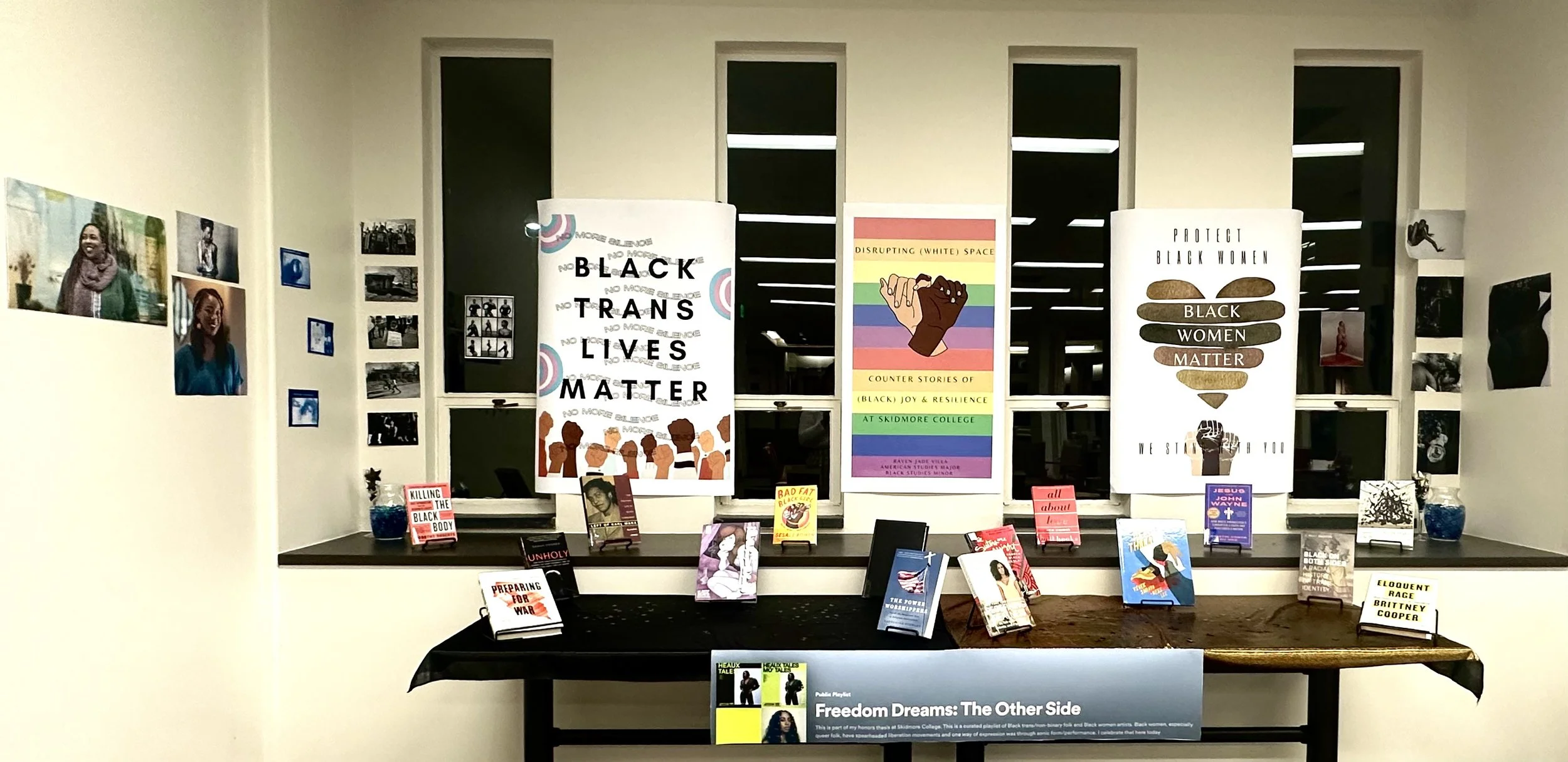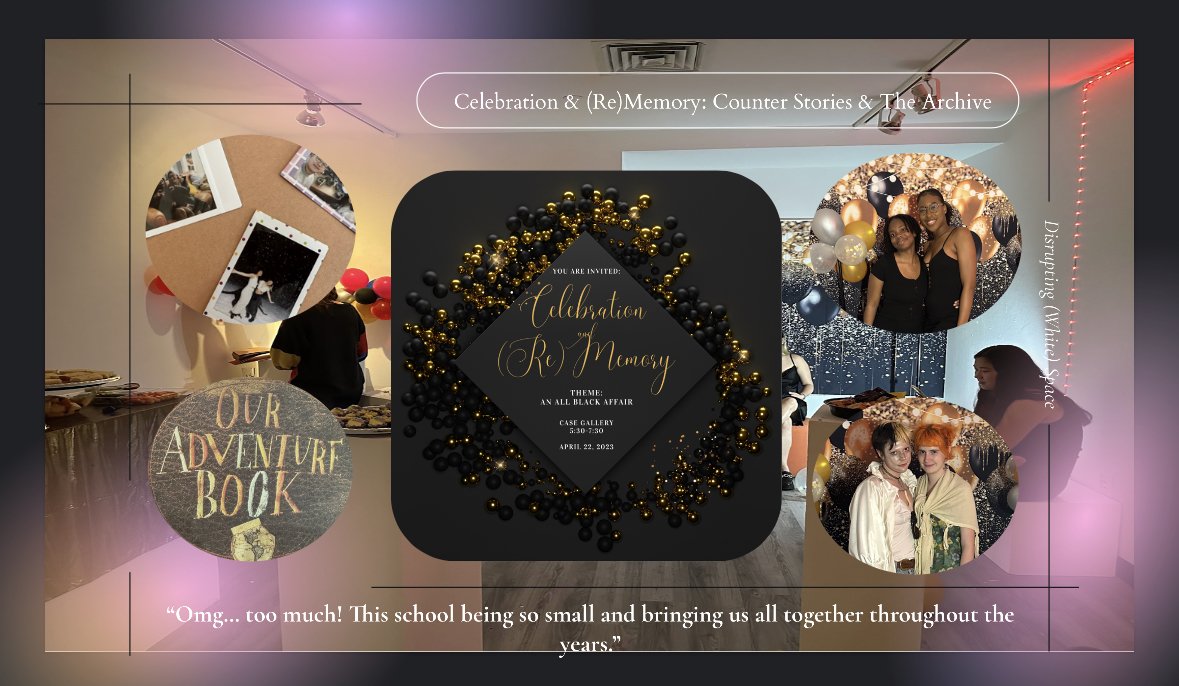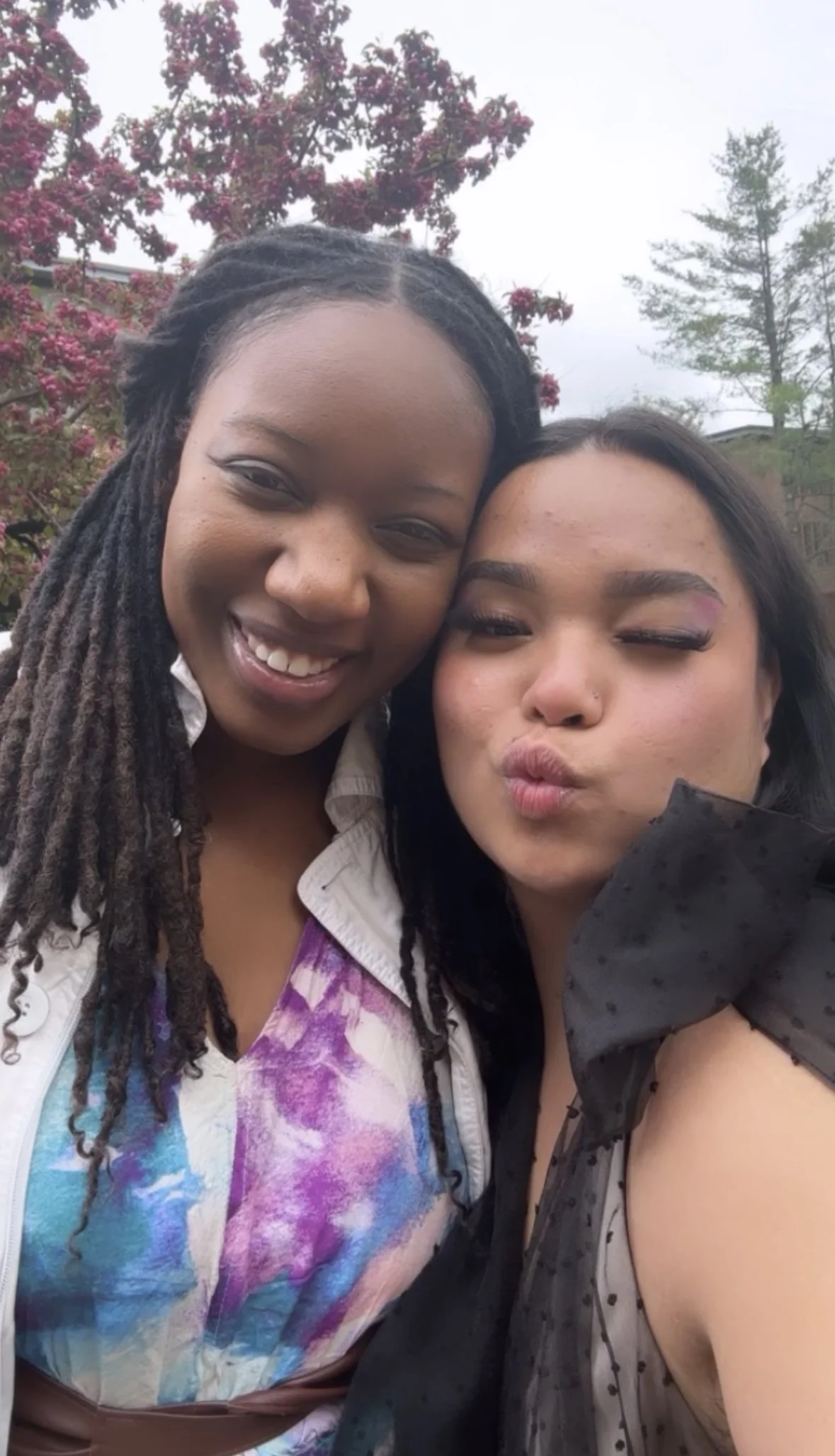What can I contribute? How do I leave my mark at Skidmore? How can I bring my thesis to life?
Images courtesy of Raven Jade Villa
Black feminist thought and practice have been my mode of inquiry, study, and practice for the past four years. Black women’s love-rooted praxes and their commitment to the liberation of all marginalized peoples resonated with me. As a student of American culture, a learner of Black feminist thought and praxes, and seeing the assault on my community today, I felt compelled to do right by my transgender sisters. My thesis, “Strike, Pose: Locating (Trans) Cultural Geographies in American Culture & History,” delved into the history and experiences of transgender women in the late 20th and 21st centuries—specifically through the lens of two Black transgender women, Tracey “Africa Norman” and Laverne Cox. A socio-historical analysis of Black women’s and transgender histories showed a cyclical pattern of suppression—or worse, erasure and genocide. Since Black women have been on American soil, White Supremacy has made it clear this was not a place meant for them to exist, thrive, and find joy. For Black trans women, with the intersections of race, gender, class, and queerness—the prospects are even worse. Intersecting oppressions have always relegated marginalized peoples to hostile, inhospitable living conditions in this cisheterowhitepatriarchal system and society. And for me, as a fat, femme-presenting, transgender immigrant, the current political and social environment of the United States forced me to question the prospects of my existence in 21st-century Amerikkka—where there is a clear effort to push my existence out of public spaces, in existing altogether.
When I had the opportunity to look into Skidmore’s archive, I noticed that Black, brown, and queer marginalized identities were hardly documented. The Skidmore News is one of few ways to institutionally archive at Skidmore, so as a graduating senior in American Studies and Black Studies, and in seeing the erasure of trans identities today, the questions felt more pressing than ever—What can I contribute? How do I leave my mark at Skidmore? How can I bring these pages to life? I dedicated these past four months to ensuring that people like me are remembered here on this campus—in defying erasure.
On April 22, 2023, I held a celebration in Case Gallery. Atop celebrating our memories and time at Skidmore, this event largely centered around a scrapbook where people can leave photos, quotes, or whatever they wanted. Rather than only critique the existing archive, this serves a repository of memory and history—it became my own way of adding to the archive. With the attack on education and our freedom to learn, knowledge also played a key role in my decisions. It led me to curate a space in the library behind the research help desk. Further, academia has always been a place for contention for Black women and their intellectual work. From outright dismissal to the mistreatment of Black women academics, academia has made it clear that Black women do not belong in this space. This exhibit is a critique brought to life. This multifaceted exhibit honors Black women creatives and academics like our own Hettie Barnhill—who has not only popularized, but revolutionized Skidmore’s own dance department—trans memoirs, Black and trans women’s scholarly work, and religious scholars who are shedding light on the state of our nation. At heart, this installation is a culmination of what I have learned here at Skidmore—this is especially my way of paying it forward to Black women. It is a bold declaration that their work is worthy of study and space. If you have the time, I humbly invite and implore you all to visit the exhibit. Additionally, I suggest that you listen to the playlist I curated, look at the photography by Black women, listen to the interview with Hettie Barnhill, or even consider adding these books to your summer reading. This introspection of our own contributions to oppressive structures and the fierce critique of our current society is the first step and the only way to a better America.
Skidmore, the professors I’ve had here (especially Professor Krefting and Professor Owens), and Black women, this is my love letter to you. Ultimately, through these actions, I hope I can be remembered—that I, Raven Jade Villa, was here.





